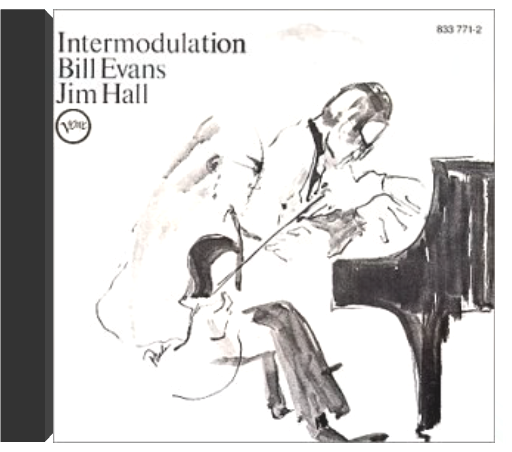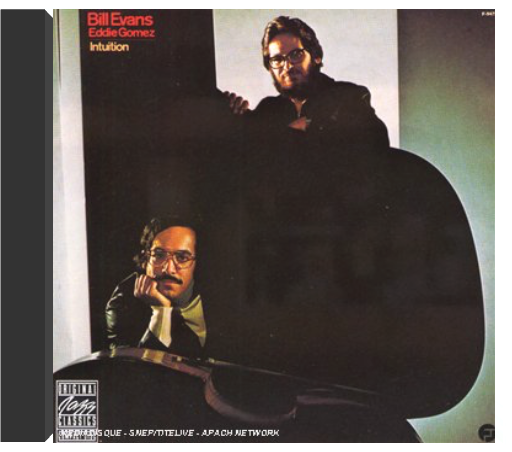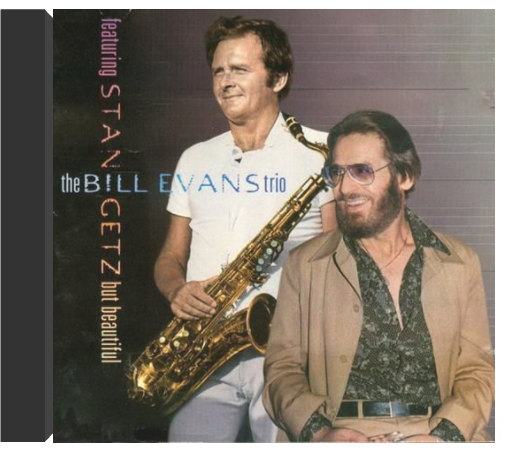 But BeautifulBill Evans, Stan Getz But BeautifulBill Evans, Stan Getz Track listing: 1. Grandfather's Waltz - (8:05) 2. Stan's Blues - (5:49) 3. But Beautiful - (5:43) 4. Emily - (5:40) 5. Lover Man - (8:03) 6. Funkallero - (6:35) 7. The Peacocks - (7:15) 8. You and the Night and the Music - (7:37) 9. See-Saw - (6:43) 10. The Two Lonely People - (8:11) Total time: 1:09:45 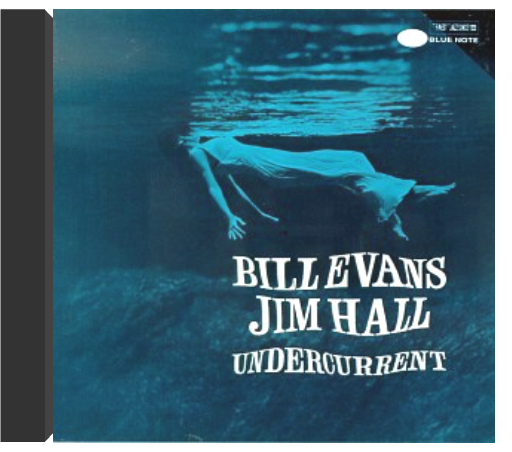 UndercurrentBill Evans and Jim Hall UndercurrentBill Evans and Jim Hall If Bill Evans brought a kind of muted, ingeniously subtle body of innovations to jazz piano, then perhaps his only parallel in the realm of jazz guitar is Jim Hall. But for all their advances on their instruments, neither Evans nor Hall ever made themselves sound forbidding. And when they joined forces for this session, they sounded fantastically in-step and interwoven, with piano and jazz falling together into a pool of streaming improvisation on mostly slow-tempo pieces. Evans's sense of time and chord placement gets continual book-ends from Hall, who places his diaphanous strums in just the right places to not brook Evans's creative flow but rather to join in it and play almost alchemically. These are calm pieces, maybe too calm considering the constant turbulence in Evans's life. But the pair hit such a high mark with this recording that it reaches the intellect and the emotions at precisely the same instant. Quite a feat. —Andrew Bartlett 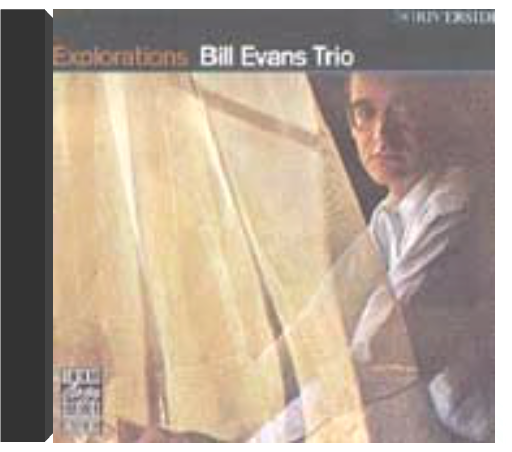 ExplorationsBill Evans Trio ExplorationsBill Evans Trio No Description Available. 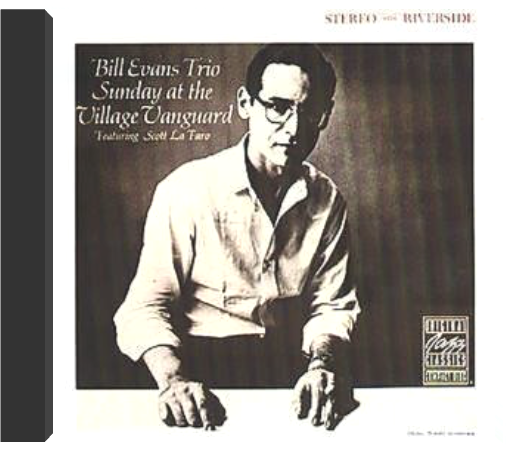 Sunday at the Village VanguardBill Evans Trio Sunday at the Village VanguardBill Evans Trio No Description Available. 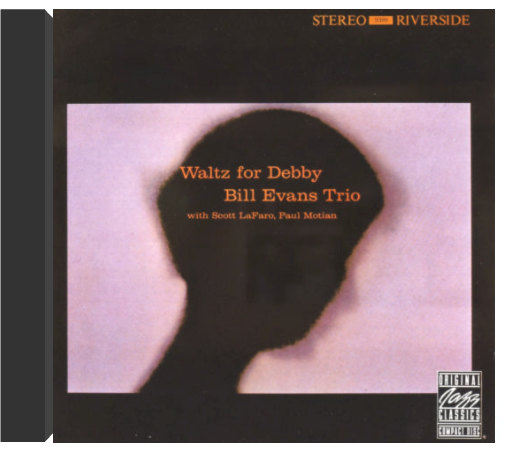 Waltz For DebbyBill Evans Trio Waltz For DebbyBill Evans Trio Tracklisting: 1. My foolish heart 2. Waltz for Debby (take 2) 3. Waltz for Debby (take 1) 4. Detour ahead (take 2) 5. Detour ahead (take 1) 6. My romance (take 1) 7. My romance (take 2) 8. Some other time 9. Milestones 10. Porgy (I loves you, Porgy) 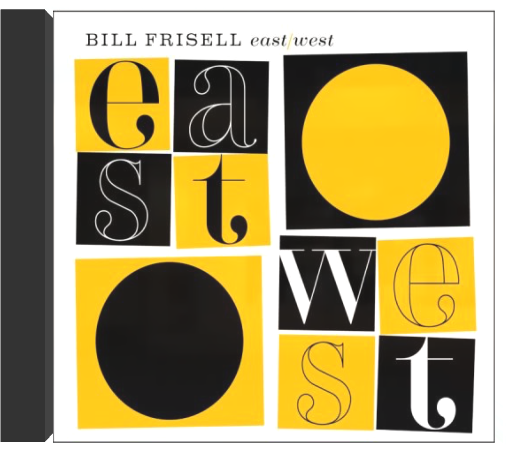 East/WestBill Frisell East/WestBill Frisell Guitarist and 2005 Grammy Award winner Bill Frisell's East/West is a double-disc set featuring two trio performances: Frisell on guitar and Kenny Wolleson on drums and percussion, with Tony Scherr on bass for the East disc, which was recorded at New York's Village Vanguard, and Viktor Krauss on bass for West, recorded at Yoshi's in Oakland, CA. 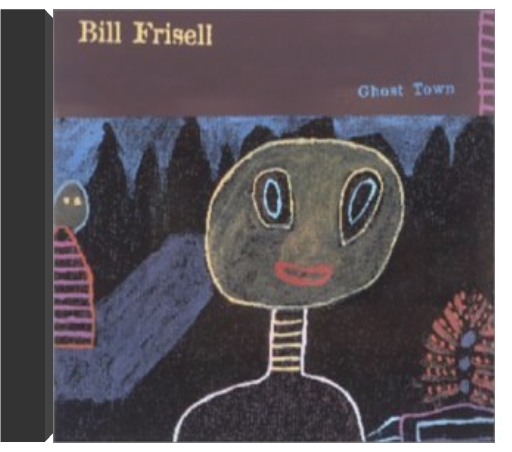 Ghost TownBill Frisell Ghost TownBill Frisell No matter what the context—and there have been scores of them—Bill Frisell has sounded like he's on one long, constant solo more than any other guitarist in jazz. His playing is singular enough, though, that it always stands way out in a good way, both calling attention to and deflecting attention from itself. With Ghost Town, Frisell is alone—at least in theory. It's definitely a solo outing, but Frisell doubles and triples up with samples and loops, sounding like a virtual ensemble in places. As on Good Dog, Happy Man, Frisell layers differing elements to create a swimming sound that swirls while staying down-home. But the sounds of Ghost Town are alternately more fragile and more challenging than Good Dog, eschewing the regularity of plotted rhythms for the waft of a melody or particular improvisational train of thought. With nods to Hank Williams ("I'm So Lonesome I Could Cry"), The Carter Family ("Wildwood Flower"), and "The Far Side" creator Gary Larson, Frisell explores new ground but never loses sight of the trail he's pioneered between jazz and folksy roots music. —Andrew Bartlett 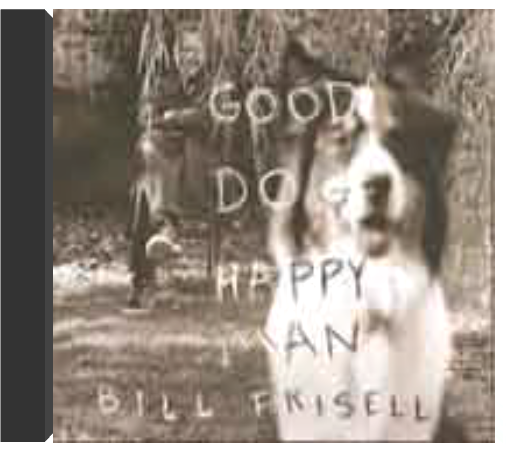 Good Dog, Happy ManBill Frisell Good Dog, Happy ManBill Frisell The live-simple equation reached in the title of Good Dog, Happy Man might lull the listener into believing that Bill Frisell's continuing vamp on his Nashville band is reaching for the quaintest sounds possible. But in truth, this mellow-opening recording is as reaching and full of yearning as any of the guitar great's other releases. He draws in the full-on bluegrass sound of Nashville with the more rock-hard crunch of that redoubtable effort's successor, Gone, Just Like a Train, which debuted longtime session drummer Jim Keltner as an ideal foil for Frisell's squishy guitar end runs around flashiness. Keltner's back on board, as is bassist Viktor Krauss (who began his Frisellian foray on Nashville), but the band has grown to include Wayne Horvitz on Hammond B-3 for several steamy tracks, Greg Leisz on steel guitar and mandolin, and Billy Cox on second six-string guitar. Frisell marks each tune with a uniquely decentered stamp, giving off a comfortable aura for new listeners and sneaking in gobs of weird twists and phrases. In addition, he samples in layers of squiggles in spots, making Dog sound like an ageless pop gem as well as the boundary-busting bounty that it is. —Andrew Bartlett 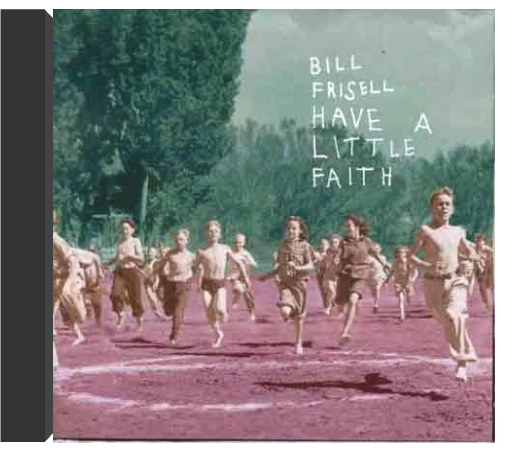 Have a Little FaithBill Frisell Have a Little FaithBill Frisell Have a Little Faith guitarist Bill Frisell italicized his stature as a composer and arranger within a combo setting that achieves a perfect balance of form and free-wheeling interpretive intensity. Frisell's core working section of the time (drummer Joey Barron and bassist Kermit Driscoll) are augmented by clarinet innovator Don Byron and a very fine accordionist, Guy Klucevsek , which gives this music chamber-like tonal colors, while allowing Frisell to elicit expansive big band gestures through a repertoire of material that is never hectic, just blithely eclectic-staking a claim for Frisell in the pantheon of great American composers and songwriters with whom he allies himself here. Thus there's a blissfully funky reading of blues giant McKinley "Muddy Waters" Morganfield's "I Can't Be Satisfied" and—from the other side of the universe—a loveably raucous take on John Phillip Sousa's "Washington Post March." Elsewhere, Frisell navigates the waters of such enigmatic modernists as Charles Ives, Aaron Copland, Sonny Rollins, Bob Dylan, and John Hiatt with equal affection and grace. —Chip Stern 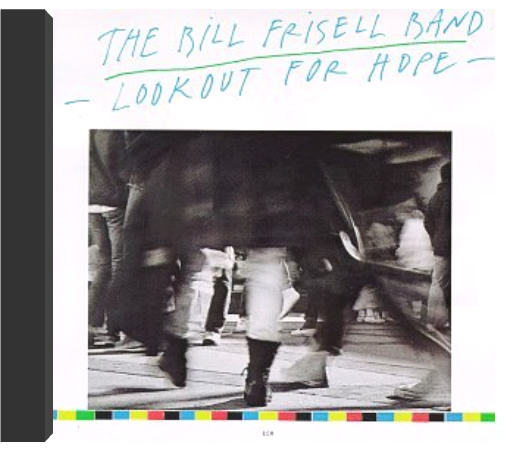 Lookout for HopeBill Frisell Lookout for HopeBill Frisell The emphasis on this 1987 session is Bill Frisell's broadening range as a composer and his increasing use of strange elisions between materials, adding the darkest clouds to greeting-card-perfect sunny days. "Little Brother Bobby" is a good example, mixing bright, country-simple parts with a dissonant countertheme that suggests a darkened cabaret. Even the very pretty "Lonesome," with its mix of near pedal-steel and acoustic guitar textures, resonates with a strange undercurrent from the reverberant bass. The band is Frisell's working quartet of the time, with cellist Hank Roberts, bassist Kermit Driscoll, and drummer Joey Baron, but the sonic resource can suggest a much larger group, the sustained tones and pitch-bending of Frisell and Roberts magnifying the sound. The title tune has Frisell's guitar line soaring over a backdrop of almost orchestral density, thanks largely to Roberts's cello. Driscoll often uses the lower register of his electric bass to add tremendous gravity, and Baron employs highly varied percussion. The only non-Frisell piece is Thelonious Monk's "Hackensack," a playfully bouncing version that makes the most of the unusual instrumentation. —Stuart Broomer |
 Made with Delicious Library
Made with Delicious Library
